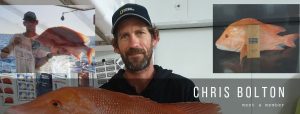Dear editor,
The suggestion from Ms Baird’s that Australia’s commercial fishers are responsible for dumping ghost nets, fishing nets lost at sea, into our oceans is categorically incorrect.
Had research into the topic been undertaken Ms Baird would have found that 96 per cent of ghost nets found in Australian waters are from international fishers and drift here due to ocean currents.
“Ghost nets are not a big problem in Australia, except for the Gulf (of Carpentaria) which is now on the wane due to some intervention by the Indonesian government,” Riki Gunn founder and coordinator of Ghost Nets Australia said.
“We have seen a significant reduction in ghost nets washing up along the west coast of Cape York which we attribute to the Minister of Fisheries in Indonesia taking a hard stance on illegal/unregulated fishing vessels in the Arafura Sea – which were all international fisheries” Heidi Taylor managing director of Taronga Blue and the Australian Marine Debris Initiative said.
“In general I would say that the Australian fisheries do not contribute a significant amount of ghost net debris to Australia’s marine debris load, they are expensive to lose.”
In fact, Australia’s Northern Prawn Fishery Industry has been commended for working alongside the World Animal Protection to reduce ghost nets in the gulf through the Global Ghost Gear Initiative.
It is unfair of Ms Baird to suggest these ghosts nets are from our Australian fishers, when the majority of ghost nets come from countries such as Taiwan, Indonesia, Korea, Japan and Thailand.
Fishing nets are a costly investment and Australian fishers are not in the business of watching their net profits quite literally drift away.
Ms Baird suggests the adoption of marine park management plans would see ghost nets increase, a statement that has no basis in fact.
Upon reading Ms Baird’s article, one has to question if she is familiar with the marine park management plans?
Ms Baird, these management plans are not a reduction in protection for our oceans. At the moment, we have marine parks, but no management plans regarding how the parks can be used, and as such no protection.
Burkes’ 2012 plans were never accepted or passed. Saying they were is like saying a letter to Santa is a binding agreement to deliver.
Under the plans, Australia would have 36 per cent of its waters listed as marine parks. This is well-above the international ‘Aichi’ target of 10 per cent by 2020.
It’s important to be clear that marine parks are not a tool for fisheries management. There are a number of fisheries management agencies at both a state and a commonwealth level and they use research-based science to determine fishing quotas for each zone and species. Fisheries management agencies are how we make sure there are enough fish in the ocean, not through marine parks. Marine parks ensure there are protections in place for ecological features, not fish stocks.
In addition, Australia’s peak national fishing bodies – Seafood Industry Australia, Australian Fishing Trade Association, Australian Recreational Fishing Foundation and Game Fishing Association of Australia – have united to support these management plans.
As fishers our priority is the ocean. We advocate the health, sustainability and future of our ocean, and as such the future of our livelihood.
Regards,
Jane Lovell, CEO Seafood Industry Australia





